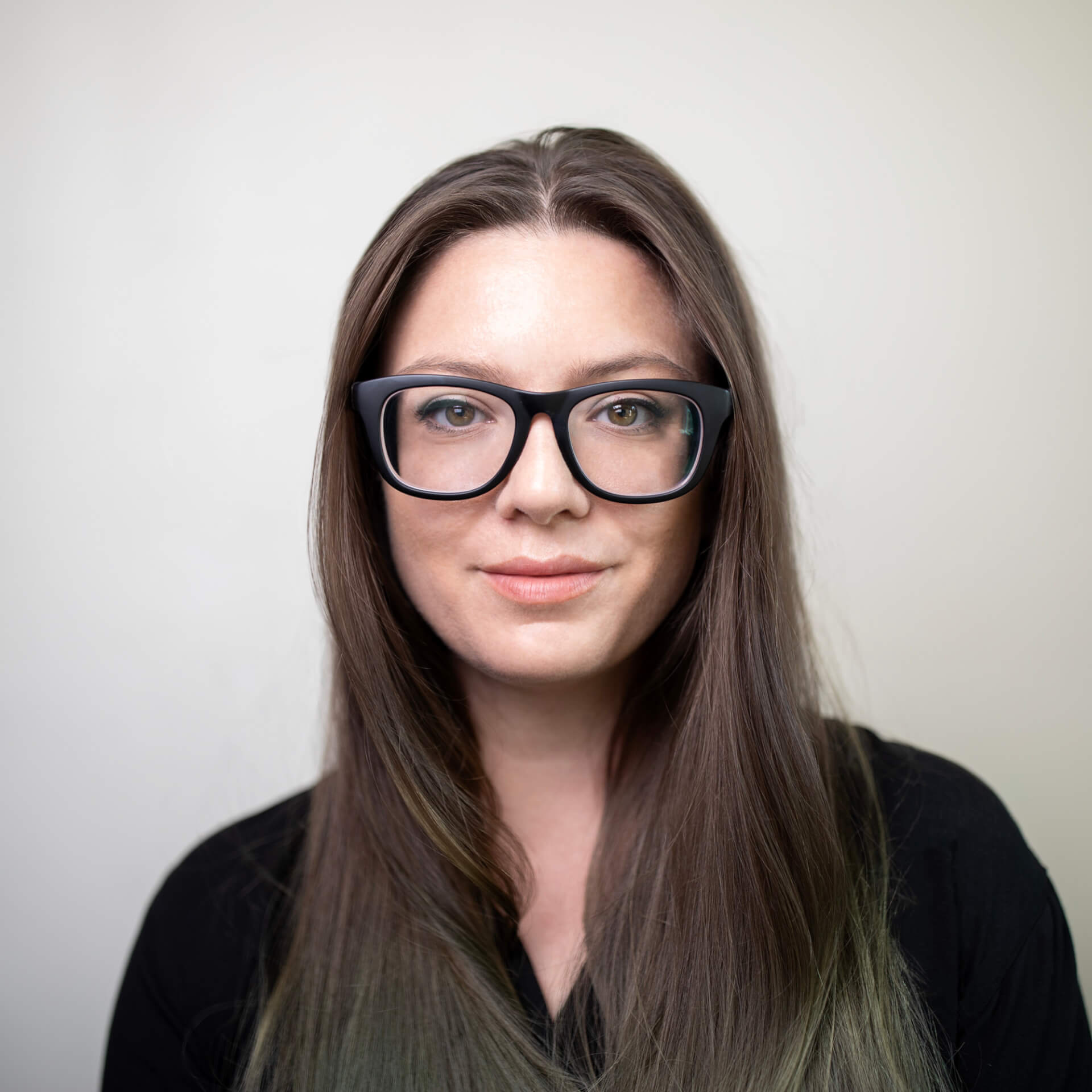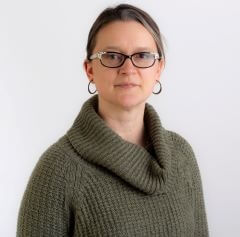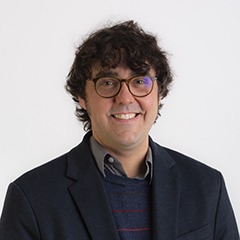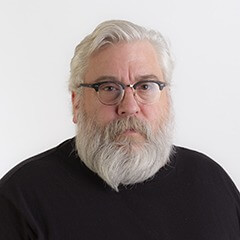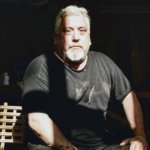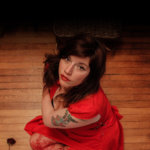Media Arts
Students work with faculty advisors to devise self-designed majors. Coursework in the major builds upon students’ experiences in the general education curriculum while providing students with pathways to deepen their knowledge or further develop their passion in a particular area of study.
The Media Arts curriculum at Antioch emphasizes experimental approaches to creative projects.
Students examine contemporary and historical works in film/video, digital and sonic arts, and respond with their own writing, movies, audio works and installations. Students enjoy access to a video recording studio with a green screen and film lighting, an insulated audio recording studio, private editing suites with software including the Adobe Creative Suite, and a 100-seat cinema.
Course of Study
Students begin to make films in the introductory class Basic Media Production; they continue their education in AudioVision: Video Production Intensive, where they often tackle a collaborative project; and they develop independent projects in an Advanced Projects course. Media majors compliment this foundation with electives that may include special topics courses in Choreographed Films and Experimental Musicals, Sound, Screenwriting, and Cross-Cultural Encounters in Cinema. Students may also take courses taught by guest professors in photography and animation and become active in the student radio station or the local NPR station. Many students choose co-op experiences or Antioch Works jobs which compliment their learning.
Current equipment students have access to includes:
Canon T3i and T5i DSLR cameras; Manfrotto tripods; Zhiyun Crane 2 stabilizing gimbals; Zoom H5n and Tascam DR-40 audio recorders; Sony lapel microphones; Sennheiser ME66 K6 Supercardioid microphones. Students have access to a variety of software including the Adobe Creative Cloud.
Notable Alumni
Graduates of the College have received many recognitions. Leilah Weinraub ’02 directed Shakedown (2018), a feature-length documentary about an underground black lesbian stripclub in LA that won the LA Outfest Special Programming Committee Award. Julia Reichert ’70 won the Academy Award for Best Documentary for her American Factory (2019). Wendy Ewald ’74, a filmmaker, photography, activist and educator, received MacArthur Fellowship in 1992 and works as a senior research associate at the Duke University Center for International Studies. John Korty ’59, TV and screenwriter, Emmy winner for The Autobiography of Miss Jane Pittman (1974), Oscar winner for the documentary Who are the DeBolts? And Where Did They Get Nineteen Kids? (1977).

Ant Farm, the seminal media art and architecture group behind Media Burn and Cadillac Ranch, and designers of the “Media Van,” designed and built Antioch’s former Art Building
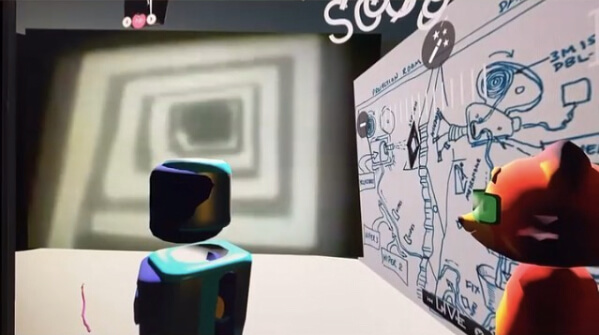
An image from a special screening of Fractal Feedback, which was shot, developed and simultaneously projected in 1974 by Tony Conrad and students in the Antioch Art Building. Forty-seven years later, current students screened the film in the space in which it was created and simultaneously presented a virtual screening in a VR replica of the art building, which visitors could attend as an avatar. Curated by Liz Flyntz 02’ and Catalina Alvarez, co-presented by Museum Without Walls and Arts@Antioch
When Designing Your Major
Students with a self-design degree primarily focusing on media arts should plan to take about 45 credits in MEDA and CAP prefix courses.
Students with a self-design major that incorporates media arts and another area of study should take 12 credits of introductory and intermediate MEDA courses and 12 credits of advanced MEDA courses.
All students incorporating media arts into their major should take about 8 MEDA credits in history and/or theory.
Media Arts Courses
- MEDA 102 Basic Media Production
- MEDA 165 Community Voices
- MEDA 185 Lens & Body: The Portrait
- MEDA 190 The History of Photography
- MEDA 195 Lens & Space: the Social Landscape
- MEDA 205 The Photographic Series
- MEDA 215 Just Design: Fundamentals of Graphic Design
- MEDA 245 AudioVision: Video Production Intensive
- MEDA 255 Archive Fever: Found Footage Filmmaking
- MEDA 265 Introduction to Animation
- MEDA 270 Special Topics in Media Arts with the Resident Artist
- MEDA 290 History of Cinema
- MEDA 299 Independent Study in Media Arts
- MEDA 315 Socially Conscious Design
- MEDA 350 Special Topics in Documentary
- MEDA 355 Experimental Media
- MEDA 365 Special Topics in Animation
- MEDA 380 Advanced Projects in Media Art
- MEDA 390 Special Topics in Film History
- MEDA 399 Advanced Independent Study in Media Arts
- MEDA 415 Comic Arts 2
- MEDA 465 Advanced Special Topics in Animation
Cooperative Education Field Placements
Media Arts students have myriad opportunities for practical experience in the field in courses that engage local radio, television, and cinema, and through a variety of national and international cooperative work opportunities, including:
-
Assistant Editor and Sound Technician, Sharp Productions, Los Angeles, CA
-
Digital Archivist, Oral History in the Liberal Arts
-
Videographer in Residence, Art Place, Portland, IN
-
Betty’s Daughter’s Arts Collective, Harlem, New York
-
WYSO 91.3 FM, NPR-affiliate radio station on the campus of Antioch College
-
Collective Eye Films, Portland, Oregon
Faculty in the arts
Recent News
NOW WE CAN DO, BECAUSE WE ARE HERE: An interview with Rayy Graham ‘23
Interview by Matt Walker ‘04 MW: “So anyway, why don't you tell me about yourself? Tell me what your name is, where you're from…” RG: “I'm Rayy. Rayy Graham. I’m a Third Year, Class of 23. I’m from Brooklyn, New York. I came here initially because it's college....
STUDENT SPOTLIGHT: LOLA BETZ ’22
Lola Betz '22 is a filmmaker, artist, musician, fashion-icon, and a true Antiochian. Lola is on the brink of completing a trilogy of feature-length films made at and about Antioch. Her work is rich, mysterious, and fun. Here is a student with great talent and potential. Enjoy this interview with Lola Betz '22.
WHAT’S NEXT: THE FUTURE OF ART WITH MICHAEL CASSELLI ‘87
Creative Collective founded by Conor Jameson ’21 at YS Porchfest
Conor Jameson ’21 graduated in June with a self-design major in Writing and Performance. She will perform as the frontwoman in the artistic collective !PUFF! during Yellow Springs Porchfest 2021

